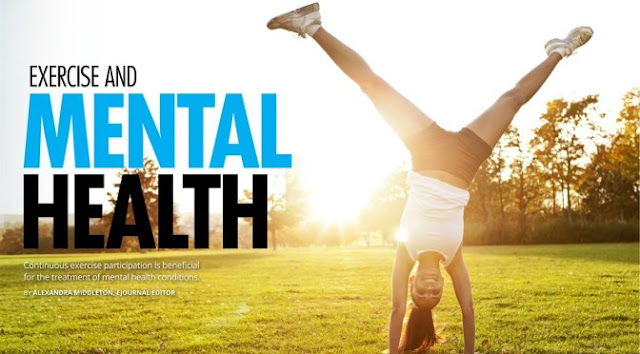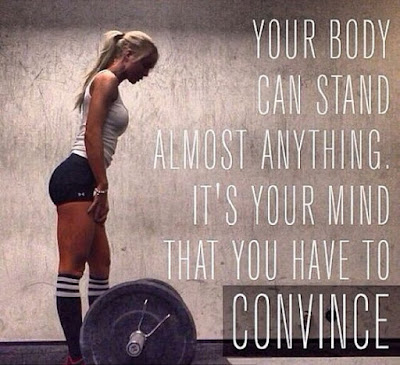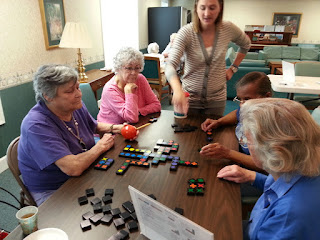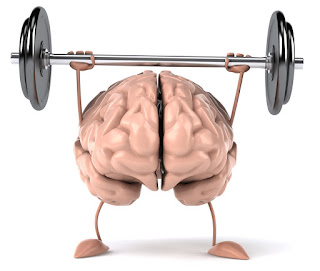- While meditation is surrounded by religion, beliefs and superstitions, it is a valid body state like any other, such as arousal or sleep. By learning to meditate, you can reap the benefits of this body state which include relaxation, energy and perspective on your life. Meditation is being taken seriously by health researchers interested in stress reduction and methods to improve overall health.Meditation is used by people interested addressing conditions such as anxiety, pain, depression, emotional problems, insomnia, and stress.Meditation is also the ultimate brain workout.Difficulty: AverageTime Required: 20 minutes, everydayHere's How:
- Sit: Find a place where you can sit comfortably, uninterrupted for about 20 minutes. The most important thing is to sit with your back as straight as possible. Some people find that sitting on the edge of a cushion helps keep the back straight. You will hear about special meditation cushions, candles, incense, statues, bells, and so forth -- don't worry about any of that stuff. The important thing is to sit comfortably and to practice meditation often. You can add in accessories whenever you want.
- Set a Timer: At times when you are meditating, you may secretly be looking for any excuse to get up and do something else. One of the most compelling excuses is to "check the time." Often during meditation your sense of timing is lost and that leads to the feeling that you have gone past the time you set for meditation. This will often happen after you have been sitting for 1 or 2 minutes. A timer helps to assure you that you have not meditated too long. If you do not have a timer, you will probably look at a clock or your watch every 30 seconds. So set a timer and then forget about time.
- Breathe: Breathing is an unique bodily function. It is automatic, we take over 10 million breaths per year without noticing, but we can also control breathing voluntarily. Think of breathing as how we can communicate with our bodies. If we breathe slowly, our bodies relax. While you sit:
- bring your attention to your breathing
- notice everything about your breathing:
- the inhale
- the exhale
- the tiny pause between them
- breathe naturally, just be aware of your breath
- This is your only task in meditation -- be aware of your breath. If your thoughts wander, just come back to breathing.
- Label: The goal of meditation is not to have no thoughts (that is impossible) but to not interact with the thoughts that occur. If, while you are meditating, you start wondering when was the last time you changed the oil in your car, that is perfectly normal -- just come back to your breathing and try not to 'chase' the thought.Some people find it helps to label the thoughts. When you notice yourself drifting, just place a neutral label on the thoughts -- if you are thinking about everything you have to do at work, label the thoughts 'work' and return to breathing.
- Don't Judge: Meditation is hard and perfect meditation is impossible. Your thoughts will drift. You will find that on some days you spend your entire meditation time thinking about your kitchen sink. Your awareness will drift away and the time will disappear. That is fine. Whenever you drift, come back to being aware of sitting and breathing. Do not judge yourself. Do not create a train of thought about how you can't meditate, how you are no good at this. Just come back to your breath.
- Don't Listen To Yourself: While you meditate, there is a little voice inside your head trying to get you to stop.
- This voice will come up with "great ideas" that you just have to write down immediately.
- The voice will read your to do list to you, leaving you feeling pressured to just stop and get something done.
- The voice will, at least once, utterly convince you that your timer has stopped and you have been meditating for hours and are late for something.
Don't listen to the voice. While you are mediating there is nothing more important for you to do. Just sit. - Watch the "Thought Clouds" Drift: Treat meditation as an experiment. Watch yourself thinking. Examine how thoughts emerge randomly and then begin to connect to other thoughts. Watch what happens to thought if you do not nourish them. How do trains of thought stop? Eventually you will see that most thoughts are random and not really worth your time. You will also begin to develop an awareness apart from your thoughts. Perhaps the greatest lesson of meditation is that you are not your thoughts.
- Bring Meditation Into Your Daily Life: Many of the skills learned in meditation can be applied during your daily life. Meditate when:
- waiting in line
- doing the dishes
- feeling upset
Take a two-minute breathing break several times during the day. Watch as your thoughts and ideas turn up at work, in conversation, or while you are solving a problem. Use the same experimental mindset and watch how you behave and think throughout the day. - Repeat Daily: Meditation is a skill that needs practice and more practice. Set a daily time for meditation and stick to it. Your brain will benefit from the endlessly fascinating journey into your own mind. Your body will benefit from the deep relaxation and stress reduction.
Wednesday 25 January 2017
Article - How exercise helps to improve mental health
Many people hit the gym or pound the pavement to improve cardiovascular health, build muscle, and of course, get a rockin’ bod, but working out has above-the-neck benefits too. For the past decade or so, scientists have pondered how exercising can boost brain function. Regardless of age or fitness level (yup, this includes everyone from mall-walkers to marathoners), studies show that making time for exercise provides some serious mental benefits. Get inspired to exercise by reading up on these unexpected ways that working out can benefit mental health, relationships, and lead to a healthier and happier life overall.
1. Reduce stress. Rough day at the office? Take a walk or head to the gym for a quick workout. One of the most common mental benefits of exercise is stress relief. Working up a sweat can help manage physical and mental stress. Exercise also increases concentrations of norepinephrine, a chemical that can moderate the brain’s response to stress. So go ahead and get sweaty—working out can reduce stress and boost the body’s ability to deal with existing mental tension. Win-win!
2. Boost happy chemicals. Slogging through a few miles on the ‘mill can be tough, but it’s worth the effort! Exercise releases endorphins, which create feelings of happiness and euphoria. Studies have shown that exercise can even alleviate symptoms among the clinically depressed. For this reason, docs recommend that people suffering from depression or anxiety (or those who are just feeling blue) pencil in plenty of gym time. In some cases, exercise can be just as effective as antidepressant pills in treating depression. Don’t worry if you’re not exactly the gym rat type—getting a happy buzz from working out for just 30 minutes a few times a week can instantly boost overall mood.
3. Improve self-confidence. Hop on the treadmill to look (and more importantly, feel) like a million bucks. On a very basic level, physical fitness can boost self-esteem and improve positive self-image. Regardless of weight, size, gender, or age, exercise can quickly elevate a person's perception of his or her attractiveness, that is, self-worth. How’s that for feeling the (self) love?
4. Enjoy the great outdoors. For an extra boost of self-love, take that workout outside. Exercising in the great outdoors can increase self-esteem even more. Find an outdoor workout that fits your style, whether it’s rock-climbing, hiking, renting a canoe, or just taking a jog in the park. Plus, all that Vitamin D acquired from soaking up the sun (while wearing sunscreen, of course!) can lessen the likelihood of experiencing depressive symptoms. Why book a spa day when a little fresh air and sunshine (and exercise) can work wonders for self-confidence and happiness?
5. Prevent cognitive decline. It’s unpleasant, but it’s true—as we get older, our brains get a little...hazy. As aging and degenerative diseases like Alzheimer’s kill off brain cells, the noggin actually shrinks, losing many important brain functions in the process. While exercise and a healthy diet can’t “cure” Alzheimer’s, they can help shore up the brain against cognitive decline that begins after age 45. Working out, especially between age 25 and 45, boosts the chemicals in the brain that support and prevent degeneration of the hippocampus, an important part of the brain for memory and learning.
6. Alleviate anxiety. Quick Q&A: Which is better at relieving anxiety—a warm bubble bath or a 20-minute jog? You might be surprised at the answer. The warm and fuzzy chemicals that are released during and after exercise can help people with anxiety disorders calm down. Hopping on the track or treadmill for some moderate-to-high intensity aerobic exercise (intervals, anyone?) can reduce anxiety sensitivity. And we thought intervals were just a good way to burn calories!
7. Boost brainpower. Those buff lab rats might be smarter than we think. Various studies on mice and men have shown that cardiovascular exercise can create new brain cells (aka neurogenesis) and improve overall brain performance. Ready to apply for a Nobel Prize? Studies suggest that a tough workout increases levels of a brain-derived protein (known as BDNF) in the body, believed to help with decision making, higher thinking, and learning. Smarty (spandex) pants, indeed.
8. Sharpen memory. Get ready to win big at Go Fish. Regular physical activity boosts memory and ability to learn new things. Getting sweaty increases production of cells in hippocampus responsible for memory and learning. For this reason, research has linked children’s brain development with level of physical fitness (take that, recess haters!). But exercise-based brainpower isn’t just for kids. Even if it’s not as fun as a game of Red Rover, working out can boost memory among grown-ups, too. A study showed that running sprints improved vocabulary retention among healthy adults.
9. Help control addiction. The brain releases dopamine, the “reward chemical” in response to any form of pleasure, be that exercise, sex, drugs, alcohol, or food. Unfortunately, some people become addicted to dopamine and dependent on the substances that produce it, like drugs or alcohol (and more rarely, food and sex). On the bright side, exercise can help in addiction recovery. Short exercise sessions can also effectively distract drug or alcohol addicts, making them de-prioritize cravings (at least in the short term). Working out when on the wagon has other benefits, too. Alcohol abuse disrupts many body processes, including circadian rhythms. As a result, alcoholics find they can’t fall asleep (or stay asleep) without drinking. Exercise can help reboot the body clock, helping people hit the hay at the right time.
10. Increase relaxation. Ever hit the hay after a long run or weight session at the gym? For some, a moderate workout can be the equivalent of a sleeping pill, even for people with insomnia. Moving around five to six hours before bedtime raises the body’s core temperature. When the body temp drops back to normal a few hours later, it signals the body that it’s time to sleep.
11. Get more done. Feeling uninspired in the cubicle? The solution might be just a short walk or jog away. Research shows that workers who take time for exercise on a regular basis are more productive and have more energy than their more sedentary peers. While busy schedules can make it tough to squeeze in a gym session in the middle of the day, some experts believe that midday is the ideal time for a workout due to the body’s circadian rhythms.
12. Tap into creativity. Most people end a tough workout with a hot shower, but maybe we should be breaking out the colored pencils instead. A heart-pumping gym session can boost creativity for up to two hours afterwards. Supercharge post-workout inspiration by exercising outdoors and interacting with nature (see benefit No. 4). Next time you need a burst of creative thinking, hit the trails for a long walk or run to refresh the body and the brain at the same time.
13. Inspire others. Whether it’s a pick-up game of soccer, a group class at the gym, or just a run with a friend, exercise rarely happens in a bubble. And that’s good news for all of us. Studies show that most people perform better on aerobic tests when paired up with a workout buddy. Pin it to inspiration or good old-fashioned competition, nobody wants to let the other person down. In fact, being part of a team is so powerful that it can actually raise athletes’ tolerances for pain. Even fitness beginners can inspire each other to push harder during a sweat session, so find a workout buddy and get moving!
Working out can have positive effects far beyond the gym (and beach season). Gaining self-confidence, getting out of a funk, and even thinking smarter are some of the motivations to take time for exercise on a regular basis.
Article - Tips to Improve Mental Fitness
Daily meditation is perhaps the single greatest thing you can do for your mind/body health. Meditation not only relaxes you, it gives your brain a workout. By creating a different mental state, you engage your brain in new and interesting ways while increasing your brain fitness.
Brain fitness has basic principles: variety and curiosity. When anything you do becomes second nature, you need to make a change. If you can do the crossword puzzle in your sleep, it's time for you to move on to a new challenge in order to get the best workout for your brain. Curiosity about the world around you, how it works and how you can understand it will keep your brain working fast and efficiently. Use the ideas below to help attain your quest for mental fitness.
1
Play Games
2
Meditation
Daily meditation is perhaps the single greatest thing you can do for your mind/body health. Meditation not only relaxes you, it gives your brain a workout. By creating a different mental state, you engage your brain in new and interesting ways while increasing your brain fitness.
3
Eat for Your Brain
Your brain needs you to eat healthy fats. Focus on fish oils from wild salmon, nuts such as walnuts, seeds such as flax seed and olive oil. Eat more of these foods and less saturated fats. Eliminate transfats completely from your diet.
4
Tell Good Stories
Stories are a way that we solidify memories, interpret events and share moments. Practice telling your stories, both new and old, so that they are interesting, compelling and fun. Some basic storytelling techniques will go a long way in keeping people's interest both in you and in what you have to say.
5
Turn Off Your Television
The average person watches more than 4 hours of television everyday. Television can stand in the way of relationships, life and more. Turn off your TV and spend more time living and exercising your mind and body.
6
Exercise Your Body To Exercise Your Brain
Physical exercise is great brain exercise too. By moving your body, your brain has to learn new muscle skills, estimate distance and practice balance. Choose a variety of exercises to challenge your brain.
7
Read Something Different
Books are portable, free from libraries and filled with infinite interesting characters, information and facts. Branch out from familiar reading topics. If you usually read history books, try a contemporary novel. Read foreign authors, the classics and random books. Not only will your brain get a workout by imagining different time periods, cultures and peoples, you will also have interesting stories to tell about your reading, what it makes you think of and the connections you draw between modern life and the words.
8
Learn a New Skill
Learning a new skill works multiple areas of the brain. Your memory comes into play, you learn new movements and you associate things differently. Reading Shakespeare, learning to cook and building an airplane out of toothpicks all will challenge your brain and give you something to think about.
9
Make Simple Changes
We love our routines. We have hobbies and pastimes that we could do for hours on end. But the more something is 'second nature,' the less our brains have to work to do it. To really help your brain stay young, challenge it. Change routes to the grocery store, use your opposite hand to open doors and eat dessert first. All this will force your brain to wake up from habits and pay attention again.
10
Train Your Brain
Brain training is becoming a trend. There are formal courses, websites and books with programs on how to train your brain to work better and faster. There is some research behind these programs, but the basic principles are memory, visualization and reasoning. Work on these three concepts everyday and your brain will be ready for anything.
10 More tips to improve your mental fitness
The brain is like a muscle – if you don’t give it a regular workout, it loses tone.
Here are some tips to help you improve your mental fitness:
- Exercise for 30 minutes every day. Physical exercise delivers oxygen to the brain. This can help to improve your memory, reasoning abilities and reaction times.
- Read often and read widely. Keeping an active interest in the world around you will help to exercise your brain and improve your mental fitness.
- Boost your levels of vitamin B. Eat plenty of wholegrain cereals, leafy greens and dairy foods. Vitamin B is essential to brain health.
- Challenge your intellect and memory. Stretch yourself mentally by learning a new language, doing the cryptic crossword or playing chess. This is important for brain health and good for your social life.
- Take time to relax. Excess stress hormones like cortisol can be harmful to the brain. Schedule regular periods of relaxation into your week.
- Take up a new hobby. Learning something new gives the ‘grey matter’ a workout and builds neural pathways in the brain.
- Actively manage your health.Conditions such as diabetes or heart disease can affect mental performance if not diagnosed and treated. Have regular check-ups with your doctor to prevent future problems.
- Engage in stimulating conversations. Talk to friends and family about a wide range of topics. This gives your brain an opportunity to explore, examine and enquire.
- Take up a manual activity or craft. Hobbies such as woodwork and sewing or activities like skipping require you to move both sides of the body at the same time, in precise movements. This can help to improve your spatial awareness and increase your reaction time.
- Exercise your brain with others. Watch, question and answer game shows and enjoy the competitive spirit. Involve the family in regular games to test their general knowledge.
Article - Why Mental fitness is important
Some Highlights
- 🙏 Mental fitness is just as important as physical fitness, especially as you age.
- 🙏 Incorporating mental dexterity exercises into your life can help keep your mind and your body healthy.
- 🙏 Exercises that help you relax are just as useful as those that stoke your brainpower.
Mental fitness is just as important as physical fitness, and shouldn’t be neglected. Including mental dexterity exercises into your daily routine can help you reap the benefits of a sharper mind and a healthier body for years to come.
Mental fitness means keeping your brain and emotional health in tip-top shape. It doesn’t mean training for “brain Olympics” or acing an IQ test. It refers to a series of exercises that help you:
- slow down
- decompress
- boost a flagging memory
2
Meditation
Daily meditation is perhaps the single greatest thing you can do for your mind/body health. Meditation not only relaxes you, it gives your brain a workout. By creating a different mental state, you engage your brain in new and interesting ways while increasing your brain fitness.
Daily meditation is perhaps the single greatest thing you can do for your mind/body health. Meditation not only relaxes you, it gives your brain a workout. By creating a different mental state, you engage your brain in new and interesting ways while increasing your brain fitness.
Mind-body connection
It’s no surprise that the more you help your body, the more you help your mind. Physical activity increases the flow of oxygen to your brain. It also increases the amount of endorphins, the “feel-good” chemicals, in your brain. For this reason, it’s not surprising that people who are in good physical shape also tend to enjoy a higher level of mental agility.
Engaging in a vigorous physical workout can help you battle depression and gain a more positive outlook on life. It’s also a great way to beat stress, which can harm you mentally and physically.
Mental exercise is just as beneficial. According to a study in the Proceedings of the National Academy of Sciences, certain memory training exercises can increase “fluid intelligence,” the ability to reason and solve new problems.
While exercise is good for the brain and the body, so is meditation. Meditation, in conjunction with other methods, is an alternative way to treat depression. Calming the mind allows you to problem solve in a more relaxed way.
Benefits of mental fitness
When you go to bed after a long day, your body begins to relax. But the mind doesn’t always follow.
Visualization can help. You can often achieve a sense of peacefulness through imagery, the process of picturing a tranquil scene or location. This practice can reduce tension in both your body and your mind by challenging neurons in the less-dominant area of your brain.
The less-dominant side of your brain is the area that controls feelings of self-confidence and optimism. When you think about something other than your daily worries, you increase activity in the neural structures of that area of your brain.
Ultimately, visualization can boost your emotional well-being and calm you down mentally.
Become mentally fit
Keeping your mind mentally fit isn’t as difficult as getting ready for a marathon, but it’s a good analogy. You can add mental exercises to the many activities you already perform, such as:
- reading
- daydreaming
- finding humor in life
You might try the following approaches to increase your mental fitness.
Stop multitasking
You may think that multitasking enables you to get more things done at once, but it actually creates more problems than it solves. Focusing on one task at a time will improve your concentration and help you to be more productive.
Be positive with yourself
Positive affirmation is one avenue to increased mental proficiency.
Affirmation, or talking to yourself in a positive way, involves strengthening neural pathways to bring your self-confidence, well-being, and satisfaction to a higher level.
To start, make a list of your good qualities. Remind yourself that you don’t have to be perfect. Set goals for what you want to improve and start small to avoid becoming overwhelmed.
Try something different
New experiences can also set you on the path to mental fitness. You can fit new approaches into your daily life in a variety of ways:
- Try new foods.
- Try new ways to accomplish routine tasks.
- Travel to new places.
- Take a new way to work or the grocery store.
According to the Alzheimer’s Association, research shows that keeping your brain active increases its vitality. Doing new things in new ways appears to help retain brain cells and connections. It may even produce new brain cells. In essence, breaking out of your routine can help keep your brain stay healthy.
Play games
From Sudoku to handheld games, people young and old alike have been looking for ways to improve their mental functioning and prevent brain aging. This list has ten of the best games and websites to improve your mental fitness.
1
Brain Age 2: How Old Is Your Brain? For Nintendo DS
2
Lumosity
Lumosity is one of the most develop brain training and mental fitness websites around. Log in for a 7-day free trial and check out the features and ideas. You'll find yourself challenging your brain and getting better at your scores along the way. Most important, these are fun brain training and mental fitness games, tests and activities.
3
Play With Your Mind
This website has over 100 original mind games, puzzles and other brain exercises. Spend some time surfing here to find games that appeal to you and to see the full range of ways to exercise your brain.
4
Happy Neuron
Happy Neuron is a website with games and activities divided into 5 critical brain areas: memory, attention, language, executive functions and visual/spatial. The website costs $9.95 a month and has a free trial offer so that you can see if you like the approach.
5
MyBrainTrainer.com
The online "brain gym" costs $9.95 for three months. It is full of games, puzzles and other challenges to improve your mental fitness. The website recommends 10 minutes of brain training twice a day for the best effects. The website also has a 21-day basic training program which claims to improve your mental speed.
6
Crosswords
Crosswords are a classic brain trainer, accessing not only verbal language but memory from many dimensions of knowledge. Start with the Monday puzzle and work your way through the week as they get more difficult. Be patient, it takes a while to get used to 'crossword think' and how clues are presented.
7
Sudoku
Sudoku is a highly addictive number placement game that relies on memory. To complete a Sudoku puzzle you have to look ahead and follow trails of consequences -- if you put a 6 in this box, that one must be an 8 and this one a 4, etc. This "planning" helps improve short term memory and concentration.
8
Braingle
Claiming to have the world's largest collection of brain teasers, this free website provide more than 10,000 puzzles, games and other brain teasers as well as an online community of enthusiasts. You can even create your own puzzles to give your brain a super workout.
9
Queendom
Queendom is a completely addictive and free website that has thousands of personality tests and surveys. Queendom also has an extensive collection of "brain tools" for you to exercise and test your brain.
10
Brainbuilder.com
Founded in 2004, Brainbuilder.com offers cognitive exercises, an online "trainer", tracking of your brain progress, and baseline testing to provide comprehensive brain training. The fee for brainbuilder.com is 7.95 per month with a free 7-day trial offer available.
Games are a great way to build up your brain muscle. Even fast-paced action video games may boost your ability to learn new tasks, according to a study in the journal Current Biology. The study found tentative evidence that video games may increase your attention span, reaction time, and task-switching ability. In addition to video games, try any game that employs the use of:
- logic
- reasoning
- trivia
Read more
- Reading is great for your brain. Even as you’re reading this sentence, your brain is processing each word, recalling the meaning instantly.
- Beyond the mechanics, reading helps you visualize the subject matter on the pages before you, and imagine what voices sound like in the written dialogue. This can also be a great relaxation technique.
- Reading is a great activity because it can stoke the imagination and ignite so many different parts of the brain. There are endless genres and types of reading material. It’s unlikely that you’ll run out of interesting things to read.
Take the time
Mental fitness doesn’t have to take up a lot of your time. Spending a few minutes on it every day can help you feel better and think more clearly. Remember that relaxation and visualization are just as important in a mental workout as the more energetic activities, such as memory exercises or game-playing. Try adding one or two activities at a time to your mental workout, such as:
- relaxing
- visualizing
- affirming
- memory exercises
- game-playing
The takeaway
Mental fitness is important to maintaining your brain and your body healthy, especially as you age. There are many types of mental dexterity exercises, and you don’t need to go to the gym to do them. They include active ones, such as learning a new song or playing a game, as well as restful ones, such as relaxation and visualization exercises. Schedule a mental fitness break into your calendar right next to your workout schedule. Your mind and your health are worth it.

















/about/hours-of-entertainment-90082661-57d817263df78c583344199b.jpg)

